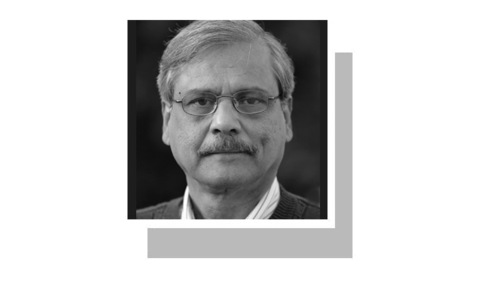“I want you to remember … that the executive authority flows from the head of the Government of Pakistan, who is the governor general and, therefore, any command or order that may come to you cannot come without the sanction of the executive head. This is the legal position. Do not forget that the armed forces are the servants of the people. You do not make national policy; it is we, the civilians, who decide these issues and it is your duty to carry out these tasks with which you are entrusted.” — Quaid-i-Azam Mohammad Ali Jinnah’s speech at the Army Staff College, Quetta on June 14, 1948.
IN just two sentences, the Quaid-i-Azam defined the role of the armed forces and determined the texture of civil-military relations. Things have been different on the ground though. Every civilian government has complained of interference, but they have collectively failed to address the causes behind the phenomenon. Unprofessional behaviour, corruption, nepotism, lack of vision and inefficiency together provide substantial space to extra-political forces to discredit civilian governments.
The Independence Day is a good time to wonder why the political parties failed to establish maturity, accountability, professionalism and integrity in their rank and file. We need to learn the simple lesson that the success of civilian supremacy is a reality only in countries where the focus of people at the helm of affairs is on human, social and economic development.
The fact that Pakistan has deviated from the Quaid’s clear beliefs has a lot to do with the country’s feudal, tribal and ultra-conservative culture and mindset. Military, along with its junior partner, bureaucracy, has ridiculed politicians because of their perceived ineptness, corruption and nepotism.
Like many post-colonial states, in Pakistan the failure of political parties to strengthen their rank and file by adhering to merit, professionalism, integrity and accountability provided opportunities to the military. Yet there is a counter narrative in civil-military relations which asserts that political process has never been allowed to flourish.
Another angle to look at the phenomenon is that of the perceived ‘no go areas’ where military’s preponderance cannot be challenged by any civilian setup. One can quote countless examples from history to substantiate claims about imbalance in civil-military relations.
Besides, no mainstream political party can claim not to have been patronised by the security establishment at one point or the other and that is a big question mark against the credibility and integrity of the politicians themselves.
The debate over civil-military relations will continue till the time both sides enter into a grand dialogue on upholding the supremacy of Constitution. At stake is the future of all the countrymen.
The writer is Meritorious Professor of International Relations and former Dean Faculty of Social Sciences, University of Karachi.















































Dear visitor, the comments section is undergoing an overhaul and will return soon.